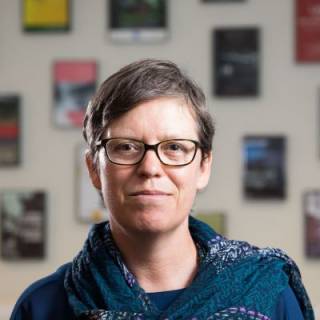Dr Sahra Gibbon is using the tools of anthropology to explore how a deeper understanding of breast cancer genetics is impacting on people, communities and health systems in different parts of the world.
The discovery of the BRCA genes provided new insight into the inheritance of breast cancer, generated new tools for diagnosis, and offered the prospect of targeted treatments. However, these scientific and medical advances did not occur in a social vacuum. In particular, they coincided with the emergence of a powerful social movement raising the profile of breast cancer and making the case for increased attention for breast cancer research, screening and treatment.
Drawing on an ethnographic approach, in her PhD research Dr Gibbon sought to tease apart the complex dynamic between this new breast cancer activism and the emergence of a new way of thinking about the biological basis of breast cancer. The 'in situ' observational techniques central to anthropology provided an opportunity to gain a richer, more nuanced sense of the interface between breast cancer activism and the new genetics, situating scientific advances within a wider social and cultural context. The picture that emerged was one of subtlety and complexity, reflecting an impact of genetics on multiple issues, including medicalisation of women's health, empowerment, and the 'nurturing' roles of women [1, 2].
Building on this foundation, Dr Gibbon has more recently adopted a comparative approach, exploring how advances in breast cancer genetics and cancer genetics more broadly have unfolded in Cuba and Brazil, two countries with very different cultural contexts and public health systems. In Brazil, for example, consideration of genetic questions has interfaced with issues of genetic ancestry and individuals' sense of their ethnic heritage or regional identity and difference [3]. In Cuba, the kind of predictive and personalised medicine epitomised by breast cancer genetics poses significant challenges to a public health system that has long emphasised equity of access at a community level [4]. Increasingly, suggests Dr Gibbon, breast cancer genetics is illuminating issues relating to social inequalities in access to medical technologies and treatments [5] - challenges that are becoming ever more urgent in the field of global health.
Although her work is not explicitly designed to influence medical practice, Dr Gibbon suggests that ethnographic approaches have great potential to generate rich insights into the social and cultural factors influencing human behaviour that could inform the design of implementation. Indeed, she is helping to establish a new UCL master's programme in Biosocial Medical Anthropology, which has the ambitious goal of exploring a deepening understanding of the interplay between biological and social factors affecting human health globally. Members of her group have also established collaborations with medical researchers, exploring issues such as the mainstreaming of cancer genetics into healthcare and the patients' perspectives of care in colorectal cancer.
- Gibbon S. Nurturing women and the BRCA genes: Gender, activism and the paradox of health awareness. Anthropol Med. 2006;13(2):157-71.
- Gibbon S. Breast Cancer Genes and the Gendering of Knowledge. 2007. Palgrave Macmillan
- Gibbon S. Translating population difference: The use and re-use of genetic ancestry in Brazilian cancer genetics. Med Anthropol. 2016;35(1):58-72.
- Gibbon S. Genomics as public health? Community genetics and the challenge of personalised medicine in Cuba. Anthropol Med. 2009;16(2):131-46.
- Gibbon S. Entangled local biologies: Genetic risk, bodies and inequities in Brazilian cancer genetics. Anthropol Med. 2017;24(2):174-188.
 Close
Close


